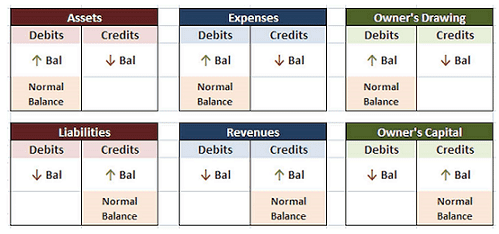
For overtime pay, Senate Republicans also propose a $12,500 deduction for single filers, doubled to $25,000 for joint tax returns. Annual overtime is the total number of extra hours an employee works outside their normally scheduled working time in a year. There is scientific proof that a human being is less productive on the eighth or tenth hour of work than at the beginning of their shift. The standard workday, according to many labor law regulations, is eight hours, and a workweek comprises 40 hours. Legally, by the Fair Labor Standards Act passed in 1938, any hours worked by an employee which exceed the standard 40-hour work week define overtime hours and are subject to overtime remuneration rates.
- Executives, administrators, and other professionals earning at least $455 per week do not have to be paid overtime under Section 13(a)(1) of the Fair Labor Standards Act.
- To find total overtime wages, simply multiply the amount of overtime hours worked by the calculated rate of overtime.
- If you are referring to extra hours worked that will contribute to a hefty paycheck, remember to spell overtime as a single word.
- However, in most companies, they get a bonus which is typically linked to their performance or annual profits.
- Under the FLSA, private employers must pay overtime wages — not offer compensatory time off — unless very limited exceptions apply.
- Under section 17 and 18 of the Act states that, no one is to work for more than ten hours a day and fifty-four hours a week, including overtime.
- Most workers have a fixed number of hours they work each week in their employment contract.
Jobs Exempt From Overtime Pay:
Private lawsuits were even more costly, with average FLSA settlements topping $1.17 million per case. A major retailer paid $65 million to settle an overtime misclassification lawsuit involving assistant managers. Even unintentional errors can lead to massive exposure when hundreds of employees are what is overtime affected.

Overtime rates
The FLSA applies to any US employer with annual sales of $500,000 or more or who is engaged in interstate commerce. The interstate commerce requirement has been interpreted very broadly, meaning the FLSA applies to most US employers. Saray is the Head of Human Resources at Connecteam, where she leads a team of HR specialists. She has a diverse background in recruiting and HR management and deeply understands the unique challenges presented to high-growth companies. Saray has strong managerial and business leadership skills, making her a relentless force in solving company issues.
What HR should consider with overtime pay
- The employee might adjust their W-4 form to lower their tax withholding throughout the year.
- Under federal law, overtime is 1.5 times an employee’s regular hourly wage for each hour worked over 40 in a workweek.
- Other exempt positions include some transportation workers, certain agricultural and farm workers, and some live-in employees such as housekeepers.
- Private lawsuits were even more costly, with average FLSA settlements topping $1.17 million per case.
- Use our free Time Card Calculator to double-check your calculations.
- Under the FLSA, overtime must be paid to both hourly and certain salaried employees.
This article and related content is provided on an” as is” basis. Sage makes no representations or warranties of any kind, express or implied, about the completeness or accuracy of this article and related content. Your job is classified as a Professional position if your primary duties require advanced knowledge and extensive education, including artists, certified teachers, and skilled computer professionals. Your job must be salaried, primarily intellectual, and you must be expected to use discression and judgement. You must spend no more then 20% of your time doing activities that are not directly related to the duties described above in order to be classified as a Professional. Your job is classified as an Executive position if your full-time responsibility is management of two or more employees.
How many hours are employees legally allowed to work in India?
The tax deduction would not be available to highly compensated employees. Employees can only claim the tax deduction if they make up to $160,000 and have a Social Security number. While the FLSA sets a national baseline—time-and-a-half for hours worked over 40 in a workweek—many states and cities go further with stricter rules. These may include daily overtime thresholds, double time pay, seventh-day premiums, or industry-specific protections. In Voluntary Overtime, the employer gives the employee an option of working overtime which the employee can either accept or reject. Employees who choose to accept this receive overtime pay in exchange for their extra hours.

Federal overtime laws

Ensure your business follows the legal requirements as per your state’s guidelines. Today, overtime compliance is managed by the federal gross vs net and state branches of the U.S. Employees who are not paid proper overtime wages for hours worked can file an unpaid overtime claim with the local Department of Labor branch, who will work with the employer to ensure compliance with the law. In 2008, there were close to 200,000 individual backwage complaints sucessfully settled by the Department of Labor with over $140.2 million dollars in backwages transferred. To calculate hourly overtime rate, multiply normal rate of pay by the company’s overtime rate. To find total overtime wages, simply multiply the amount of overtime hours worked by the calculated rate of overtime.
- Overtime pay is the compensation employees get for working longer than standard hours.
- Employers can decide to offer more favorable overtime conditions.
- Due to some reasons, an employee voluntarily or involuntarily works for more than their fixed hours, and these extra hours worked by them are called overtime.
- Email is far and away the preferred method of communication in today’s professional culture.
- It’s also important to note that some collective bargaining agreements or union contracts may stipulate specific overtime terms, overriding standard company policies in certain industries or professions.
- Both overtime and paycheck are spelled as a single word, so remember this similarity next time you need to use either over time or overtime.
Nonexempt vs. exempt employees
- For example, in Alaska, nonexempt employees receive overtime pay if they work more than eight hours in a day.
- The no tax on overtime discussion would exempt their overtime wages from federal income tax.
- Overtime pay rate varies in different companies and is determined by various factors besides hours worked.
- The Indian employment laws and Indian labour laws are still not complete when it comes to overtime rules in the private sectors in India.
- Javier Palomarez, founder and CEO of the United States Hispanic Business Council, told Newsweek the policy could “unintentionally amplify tipping fatigue.”
- In 2024, the DOL recovered over $149.9 million in back wages for workers — with overtime violations accounting for approximately $126.9 million.
Most employees who work more than 40 hours in a 7-day workweek must be paid overtime. Overtime pay must be at least 1.5 times the employee’s regular hourly rate. Other overtime rates, like double time pay are not required under Washington state law, with the exception of certain public works projects.

The Federal government’s minimum standard is one and a half times the regular pay rate for non-exempt employees who work over 40 hours per week. Many businesses choose to offer their employees time and a half if they work holiday shifts, even https://www.bookstime.com/articles/dental-bookkeeping if they work less than 40 hours in the workweek (aka holiday pay). However, there is no federal overtime law on whether employees should be paid the overtime rate for working holidays. However, the FLSA doesn’t require extra pay for work done on weekends, holidays, or regular days off unless those days include overtime hours. Also, bonus payments must be included in your regular rate when calculating overtime.


